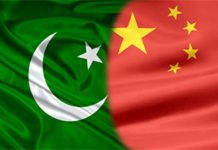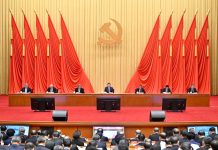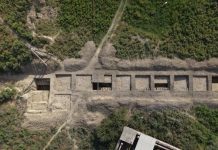RIYADH: The international community should fully respect the will of regional countries and contribute to stability and peace in the Middle East, Chinese State Councilor and Foreign Minister Wang Yi has said in a recent interview with Al Arabiya TV channel.
For the region to emerge from chaos and enjoy stability, it must break free from the shadows of big-power geopolitical rivalry and independently explore development paths suited to its regional realities, Wang told the media in Riyadh on Wednesday, stressing that the international community should neither overstep its responsibility nor simply sit by and look on.
China has established diplomatic relations with all the countries in the Middle East, and elevated its relations with 13 Middle East countries to strategic partnerships, he said, adding that China is also the biggest trading partner and a major investor in the Middle East.
“China has become a staunch defender, builder and contributor to the current international order,” Wang said, noting that China’s relations and cooperation with countries in the Middle East will enjoy even greater prospects.
“COVID-19 is still spreading in the region, turbulence persists, and hotspot issues are evolving amid twists and turns,” Wang said. “The region is again at a crossroads.”
Against this backdrop, he said, China wishes to propose a five-point initiative on achieving security and stability in the Middle East, namely advocating mutual respect, upholding equity and justice, achieving non-proliferation, jointly fostering collective security, and accelerating development cooperation.
As it fosters a new development paradigm, Wang said, China is ready to share with Middle East countries its market opportunities, work with Arab countries to actively prepare for the China-Arab states summit, promote high-quality Belt and Road cooperation, and expand new areas of growth such as high and new technologies.
“We also look forward to early conclusion of a free trade agreement with the Gulf Cooperation Council,” he added. – Agencies






